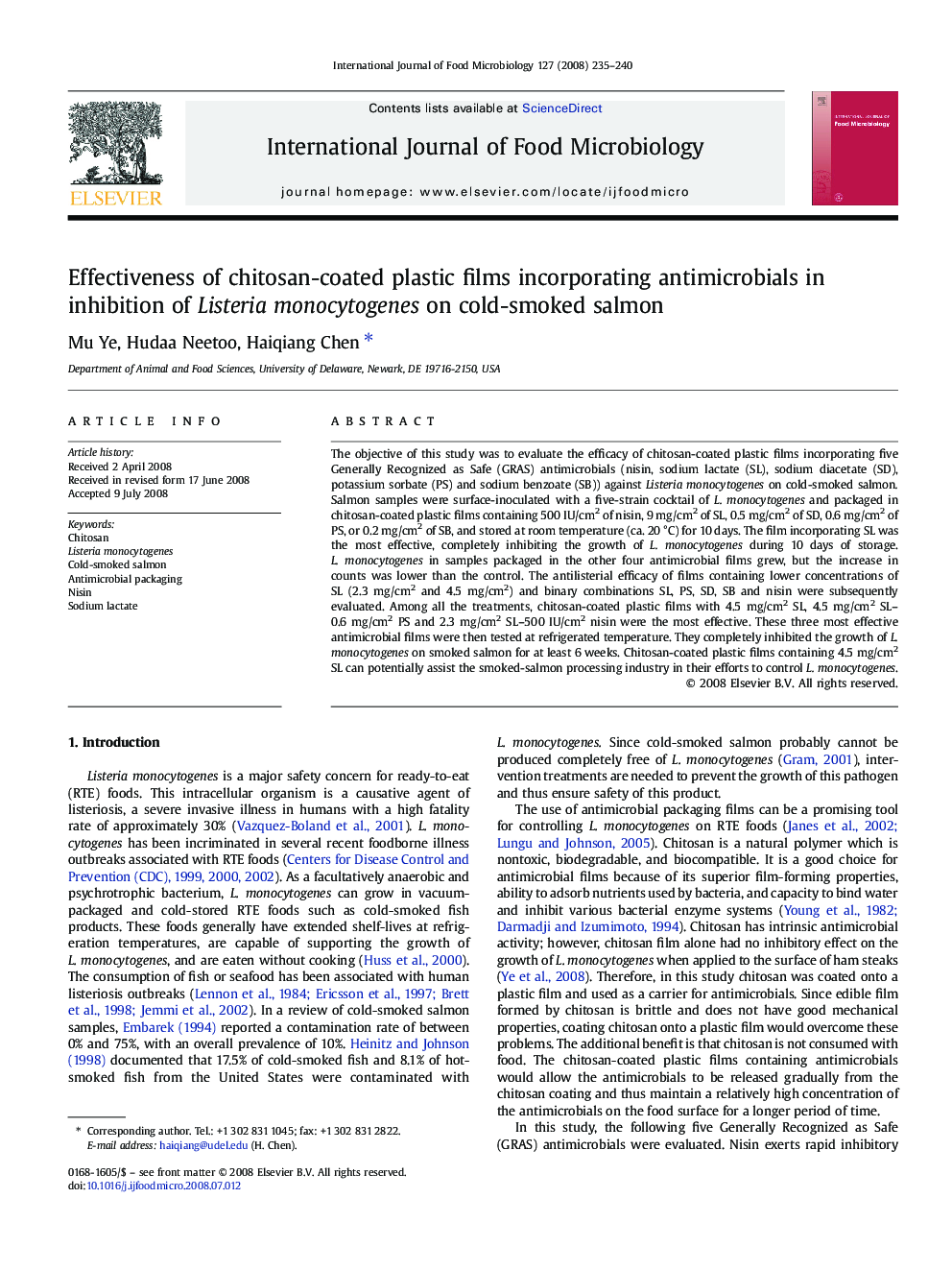| Article ID | Journal | Published Year | Pages | File Type |
|---|---|---|---|---|
| 4369768 | International Journal of Food Microbiology | 2008 | 6 Pages |
The objective of this study was to evaluate the efficacy of chitosan-coated plastic films incorporating five Generally Recognized as Safe (GRAS) antimicrobials (nisin, sodium lactate (SL), sodium diacetate (SD), potassium sorbate (PS) and sodium benzoate (SB)) against Listeria monocytogenes on cold-smoked salmon. Salmon samples were surface-inoculated with a five-strain cocktail of L. monocytogenes and packaged in chitosan-coated plastic films containing 500 IU/cm2 of nisin, 9 mg/cm2 of SL, 0.5 mg/cm2 of SD, 0.6 mg/cm2 of PS, or 0.2 mg/cm2 of SB, and stored at room temperature (ca. 20 °C) for 10 days. The film incorporating SL was the most effective, completely inhibiting the growth of L. monocytogenes during 10 days of storage. L. monocytogenes in samples packaged in the other four antimicrobial films grew, but the increase in counts was lower than the control. The antilisterial efficacy of films containing lower concentrations of SL (2.3 mg/cm2 and 4.5 mg/cm2) and binary combinations SL, PS, SD, SB and nisin were subsequently evaluated. Among all the treatments, chitosan-coated plastic films with 4.5 mg/cm2 SL, 4.5 mg/cm2 SL–0.6 mg/cm2 PS and 2.3 mg/cm2 SL–500 IU/cm2 nisin were the most effective. These three most effective antimicrobial films were then tested at refrigerated temperature. They completely inhibited the growth of L. monocytogenes on smoked salmon for at least 6 weeks. Chitosan-coated plastic films containing 4.5 mg/cm2 SL can potentially assist the smoked-salmon processing industry in their efforts to control L. monocytogenes.
